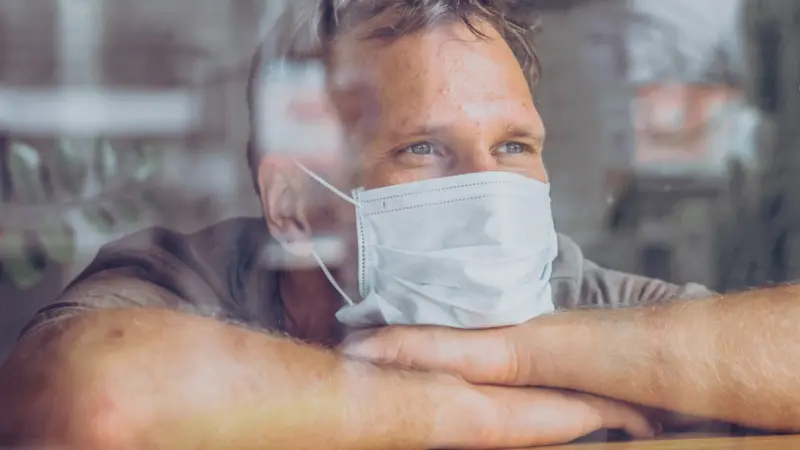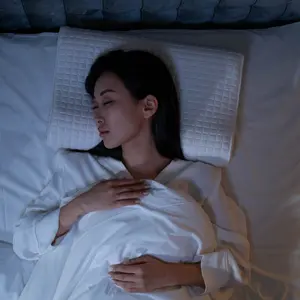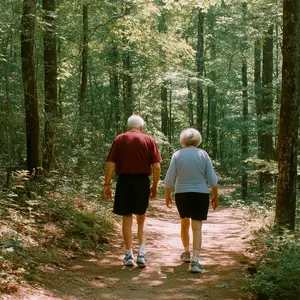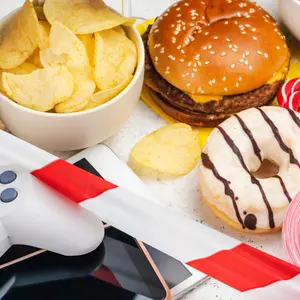

WELLthier Living and Aging

WELLthier Living and Aging
Coping with Mental Illness in the Time of COVID-19
Millions of people around the world are struggling to cope with the COVID-19 pandemic, but this is an especially challenging time for people who live with mental illness. Devastating news stories, worries about loved ones, anxiety over finances, and simply readjusting to life under lockdown have caused increased stress, anxiety, and uncertainty for nearly everyone but are especially concerning for the 45 million Americans living with mental illness.
Prescriptions for anti-anxiety drugs have skyrocketed in the United States, increasing 34% between mid-February and mid-March, according to a report from Express Scripts, a pharmacy-benefit company owned by Cigna. As social distancing has become society’s primary tool to slow the spread of the novel coronavirus, feelings of isolation, loneliness, stress, and fear may. Have triggered a worsening of many mental illnesses, such as generalized anxiety disorder, clinical depression, obsessive-compulsive disorder (OCD), and substance-abuse disorder.
Feelings of isolation, loneliness, stress, and fear may have triggered a worsening of many mental illnesses.
Mari A. Lee, a licensed marriage and family therapist in Southern California, who writes and speaks on trauma and relationships, shared: “No human being responds to stressors in precisely the same way, even those who fall within the same diagnostic category. This is partly due to the level of stress and hardship the person is dealing with, the support system the person has in place, how far along they are in their therapy work, as well as the type of mental illness the person is dealing with.”
Mental illness takes many forms. For those with anxiety, the pandemic may increase fears of catching or dying from the virus. Anxiety sufferers are prone to catastrophizing and may be paralyzed by the fears of the virus. Depression sufferers who are isolating are at risk of focusing on the negative aspects of the situation to the point of feeling deeper hopelessness and despair. People who live with OCD, especially those whose symptoms manifest as compulsive cleaning or hand washing, are especially vulnerable during a time when we are all being asked to wash our hands and sanitize everything we touch. Those with substance-abuse disorder struggle to control their use of addictive substances under the best of circumstances; the addition of pandemic-related stressors around family, finance, and health can be triggers for relapse in people with addictions.
For those with anxiety, the pandemic may increase fears of catching or dying from the virus.
People with mental illness may be at higher risk of infection and, if infected, may have worse prognoses. Dr. Benjamin Druss, Professor at the Department of Health Policy and Management at Rollins School of Public Health at Emory University, says, “Disasters disproportionately affect poor and vulnerable populations, and patients with serious mental illness may be among the hardest hit.”
In America, 44.3% of all cigarettes are consumed by individuals who live with mental illness and/or substance-abuse disorders. High rates of smoking among this population increase the risk of respiratory illnesses such as asthma and chronic obstructive pulmonary diseases, which can lead to COVID-19 complications.
People with acute mental illnesses sometimes struggle with holding down a job or finding a job that pays enough, and subsequently may not have access to health insurance. This population also struggles with residential instability and homelessness, sometimes living in shelters or temporary congregate housing, which make social distancing difficult. Transient living situations can also make it harder to identify, follow up, and treat those who are infected, according to Dr. Druss.
People who rely on public assistance or who struggle with homelessness may not have access to technology such as laptops, tablets, cell phones, or even the Internet. Mari Lee points out that “this can be especially isolating for individuals who are not only cut off from other human beings, but the world as well.” Linda Hurley, president and CEO of CODAC Behavioral Health, a Rhode Island non-profit that provides treatment to opioid users, told CBS News that about 10% of her patient population does not have access to technology to connect them to treatment or social networks. While clinicians around the world have shifted to online therapy using telehealth or telemedicine, if people don’t have access to technology it often means they are missing out on the treatment they need.
In some cases, however, people with mental illnesses are doing better than they had expected. Ms. Lee says this can sometimes be attributed to the coping strategies some people developed as a result of earlier trauma. In other cases, people who have dissociative mental health issues, post-traumatic stress disorder, or certain anxiety disorders may find they are better able to adapt and deal with the anxieties of the pandemic by finding activities that soothe emotional discomfort. As Ms. Lee shared, “I have been honored to support many individuals who have surprised themselves in the way they are surviving, and in some cases, even thriving. Individuals who are using tools they’ve learned in therapy . . . are tapping into areas of resiliency they never knew existed.”
Clinicians around the world have shifted to online therapy using telehealth or telemedicine.
The International OCD Foundation Ambassadors, Ethan Smith, Kimberly Quinlan, and Shala Nicely, say that people who are managing their OCD may be models for all of us. They point out that through an evidence-based therapy called Exposure and Response Prevention, people with OCD learn to face fears, tolerate discomfort instead of engaging in compulsions, and learn to live with uncertainty. It can be empowering to accept the lack of control we all face right now.
The pandemic response from mental health care providers has been rapid and wide-ranging. Therapists are now providing almost every type of clinical service online, including individual and couples therapy, group therapy, EMDR (eye movement desensitization and reprocessing) therapy and family therapy through HIPAA-compliant video conferencing or via phone sessions, which is proving valuable for those who do have access to technology. Ms. Lee says, “The good news is that current research has shown that therapy is just as effective via Telehealth as it is in the counseling office.” She shares that some patients who were reluctant to process challenging material during in-person sessions are now finding that they can do so via Telehealth.
Ms. Hurley of CODAC says that her patients who are using tele-counseling are more engaged, “They’re sharing more.” People are connecting to online 12-step meetings or finding community and support in telehealth group therapy. Thirty-year Alcoholics Anonymous veteran Billy T. told CBS News that online AA meetings have helped him reconnect with old friends who have rejoined his local AA group online after moving cross-country or overseas. As one person shared recently with Ms. Lee, “The tide will eventually turn, it always does. For now, I’m learning how to navigate these unchartered waters and I am proud of myself.”
For those who are struggling to manage the additional stress and anxiety during this time of upheaval, here are some tips from mental health professionals:
- Accept feeling anxious. Anxiety is uncomfortable but is not going to hurt you. Tell yourself you can handle being anxious.
- Recognize there is little in life that we can control and remember that you can handle uncertainty.
- Be kind to yourself. Allow yourself to meet your emotions with tenderness and warmth.
- Stay connected to others even if you can’t see them in person. Call, email, videoconference, or text friends and family. Connect with support networks and church groups. Utilize outside support as much as you need to.
- Limit news to one verified, trusted source and limit how much time you spend each day reading news and updates. Focus on the facts, rather than emotions you may be feeling about them.
- Create healthy habits. Exercise, good nutrition, and quality sleep are all important for both physical and mental health.
- Take breaks and do things you enjoy.
- Maintain daily routines.
- Start a project or a new hobby. Stay busy.
Focus on responsibility toward others to take your mind off yourself.
- Practice gratitude. Write a daily list of five things you are grateful for.
- Have a daily routine of self-care. Make it a point to get up, take a shower, get dressed, work out, and cook your meals.
- Even if addiction is not an issue for you, avoid alcohol. Alcohol can impair impulse control and judgment, sometimes leading to destructive behaviors.
- Challenge negative thoughts. If you get a negative thought stuck in your head, do something to distract yourself.
- Use journaling to write down what is worrying you, and then write down what you can do and what you cannot do about the situation.
- Spend at least 30 minutes each day in sunlight or under a therapy lamp.
- Focus on responsibility toward others to take your mind off yourself. Ask yourself what others need—think about what you can do for friends, family, or a pet.
If you are currently in treatment, stay in treatment. You can ask your therapist to adjust to your comfort level for telehealth sessions, whether that means requesting they dim bright lights, adjusting brightness, move away from the camera, or speak louder. You can opt for phone sessions rather than video sessions.
If you are not currently in treatment and are struggling with increased symptoms or are at risk of self-harm, reach out to a therapist. There is no need to suffer in silence. The following resources can help:
National Suicide Prevention Lifeline 1-800-273-8255
National Domestic Violence Hotline 1-800-799-7233
National Alliance on Mental Illness (NAMI) HelpLine can be reached Monday through Friday, 10 am–6 pm, ET. 1-800-950-NAMI (6264) or info@nami.org
Psychology Today online directory for therapists. You can search by zip code to find a therapist in your area: www.psychologytoday.com
Get involved in an online support network such as Health Unlocked https://healthunlocked.com/
Alcoholics Anonymous online options https://www.aa.org/pages/en_US/options-for-meeting-online
REFERENCES
Amen, D. (2020, April 20). 10 tips for dealing with suicidal thoughts, with Dr. Amen (Video). Amen Clinics. https://www.youtube.com/watch?v=haJqlY68mgw
Druss, B.G. (2020, April 3). Addressing the COVID-19 pandemic in populations with serious mental illness. JAMA Psychiatry. https://jamanetwork.com/journals/jamapsychiatry/fullarticle/2764227
Lee, Mari A., LMFT, Licensed Marriage and Family Therapist, Glendora, California. https://www.growthcounselingservices.com/
Lin, S. (2020, April 21). Anti-anxiety medication prescriptions spike during coronavirus pandemic, report finds. The Miami Herald. https://www.miamiherald.com/news/coronavirus/article242178031.html
McIntyre, M. (2020, April 24). How coronavirus is affecting the mental health of millions of Americans. PSYCOM. https://www.psycom.net/coronavirus-mental-health
McIngvale, E. (2020, March 15). What to do if the coronavirus health guidelines are triggering your anxiety or OCD. The Mighty. https://themighty.com/2020/03/coronavirus-ocd-anxiety-advice/
National Alliance on Mental Illness. (n.d.). Tobacco and smoking. https://www.nami.org/Advocacy/Policy-Priorities/Improve-Care/Tobacco-and-Smoking
Sganga, N. (2020, April 23). How the coronavirus is hurting drug and alcohol recovery. CBS News. https://www.cbsnews.com/news/how-the-coronavirus-is-hurting-drug-and-alcohol-recovery/
Smith, E., Quinlan, K., and Nicely, S. (2020, March 24). Why the OCD community holds the key to coping with COVID-19 anxiety. International OCD Foundation. https://iocdf.org/blog/2020/03/24/why-the-ocd-community-holds-the-key-to-coping-with-covid-19-anxie…


 By
By



